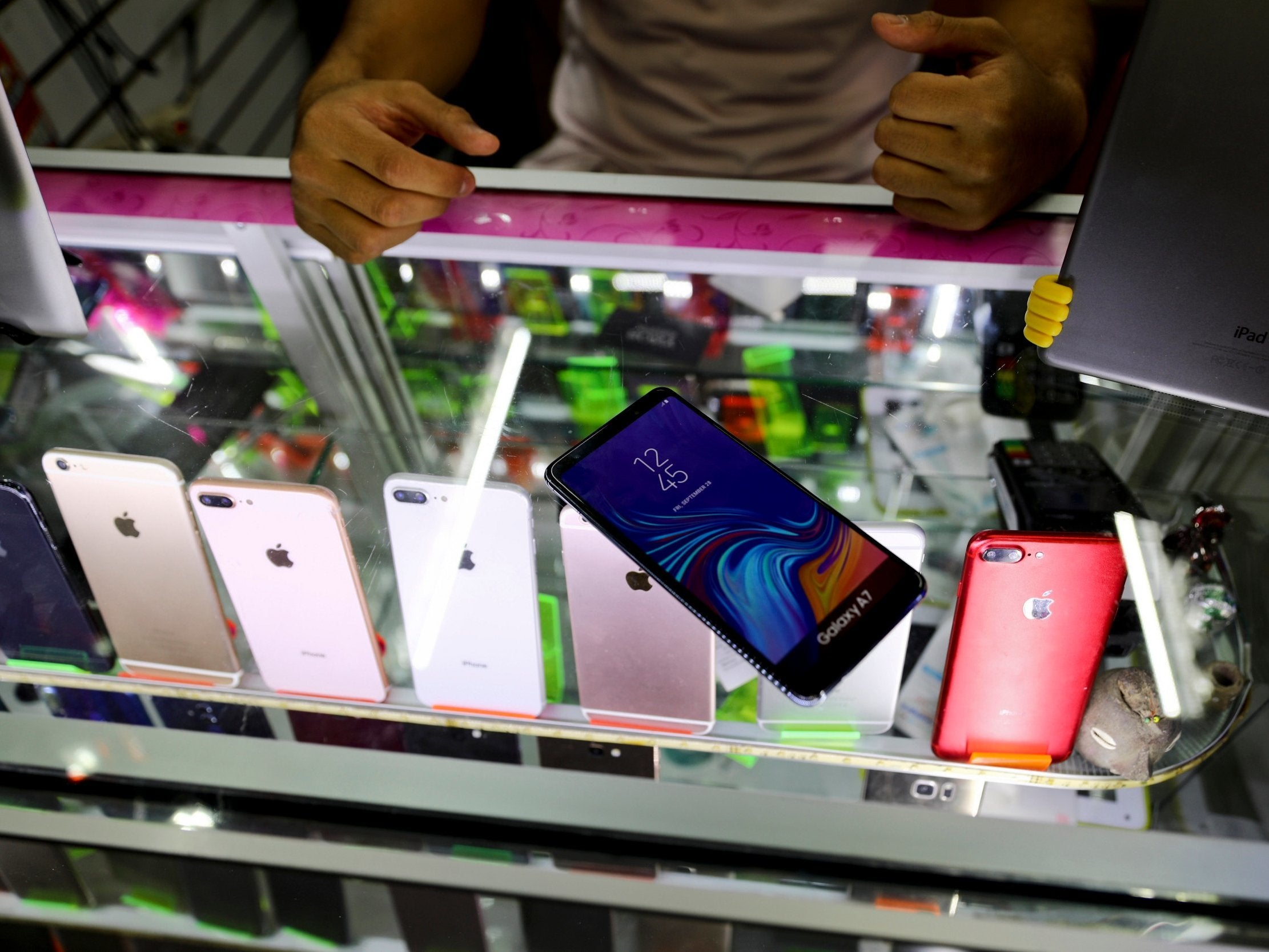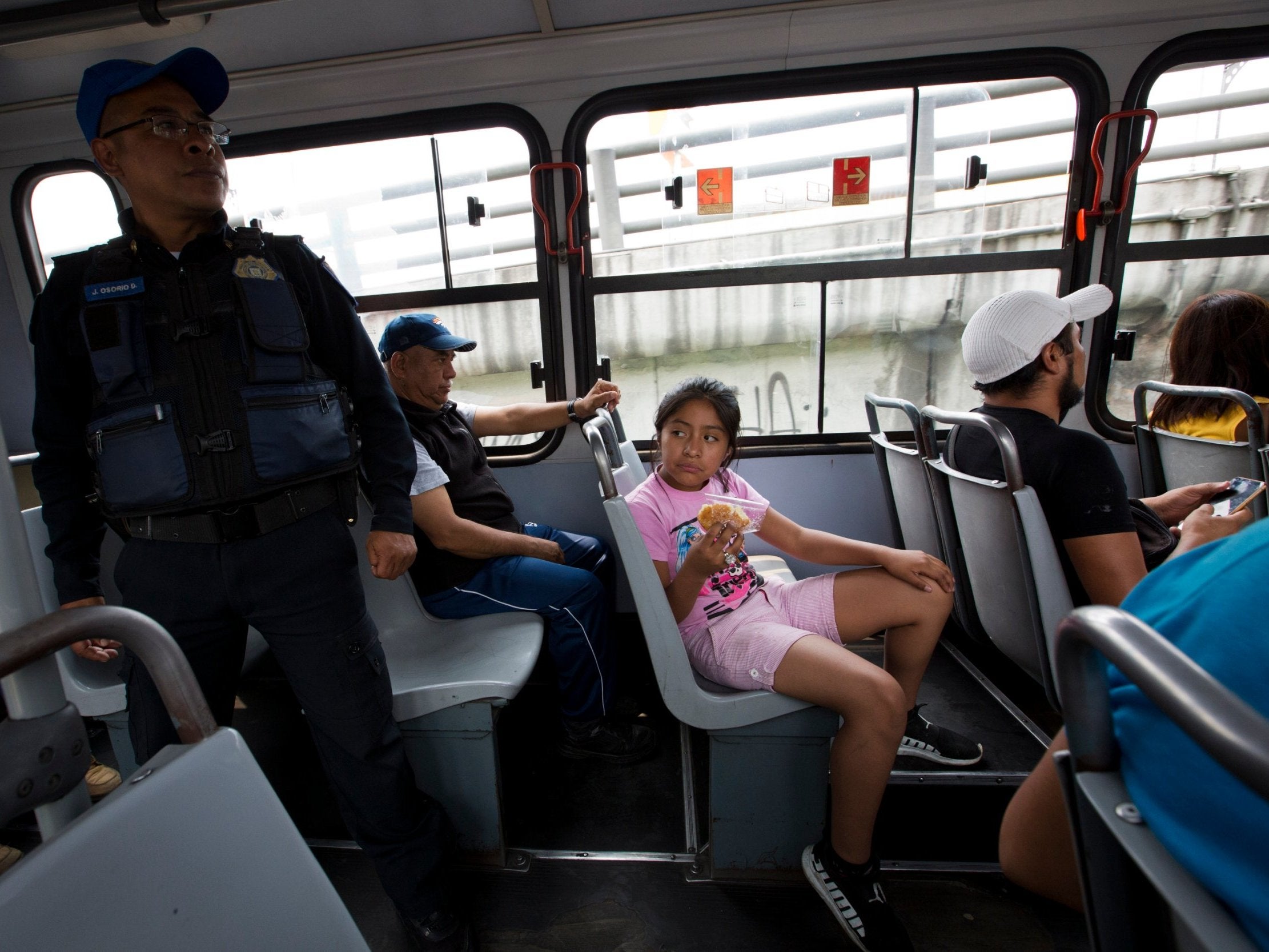Mexicans buy fake phones to hand over in muggings as armed robberies soar
It comes after an average of 70 reported violent muggings every day in Mexico City in the first four months of 2019

Armed robberies have become so commonplace in Mexico City that commuters have resorted to carrying decoy mobile phones.
The “dummies”, which cost about 300 to 500 Mexican pesos (£12-£20) each, are convincing fakes with start-up screens and bodies that mimic the real thing, as well as a piece of metal inside to add weight.
Martha Patricia Rociles Estrada, who was herself a victim of robbery, said most city residents are making their daily commutes in fear.
The schoolteacher, from the suburb of Nezahualcoyotl, said: “Getting on public transportation is now a risk. You get on, but you never know if you're going to return.
“Now you have to be careful to carry money, because if you don’t, the thieves get angry and you run the risk that they’ll shoot you if you’re not carrying money.”
A vendor named Axel, who asked for his full name not to be used, said he would sell three or four decoy phones a week from his stall at an indoor electronics market.
“It’s useful for robberies, the large number of muggings happening in Mexico City,” he said.
“They say ‘hand over your cell phone, give me everything’, and people know now they have to hand over the phone quick, in a matter of seconds, so they hand over these phones and often the thieves don’t realise it.”
However he added that there would be “problems” if a thief found out they had been given a fake phone.
Gloria, another stallholder, said the dummy trade started about 14 years ago, but at that time it was phone shops buying the fake handsets for their display cases to protect themselves against thieves.

“Dummies have been sold here for about 14 years, for use in showcases, but nowadays people are buying them to protect their own cell phones,” she said.
Gloria sells an iPhone dummy for 300 pesos (£12), which would save a victim the 18,000 pesos (£745) a real iPhone would cost.
There were an average of 70 reported violent muggings every day in Mexico City in the first four months of 2019.
About two thirds of those were committed against pedestrians, with the rest split almost evenly between bus passengers and assaults on motorists stopped at lights or caught in traffic jams.

Between 2017 and 2018, assaults of this nature rose by about 22 per cent.
Robberies are now videotaped by surveillance cameras on public buses and often shown on news programmes.
The government of the eastern borough of Ixtapalpa - one of the city’s biggest and poorest precincts - launched a programme this week to have police ride the buses to prevent robberies.
However some residents were sceptical about how effective the tactic would be.
Oscar Armenda, a transportation worker who was riding a bus in Iztapalapa at midday as police started climbing aboard, said: “This is good in a way, but in a way it’s not.
“They should do this at the time of day when it’s needed, at night, not now.”
Associated Press contributed to this report
Bookmark popover
Removed from bookmarks